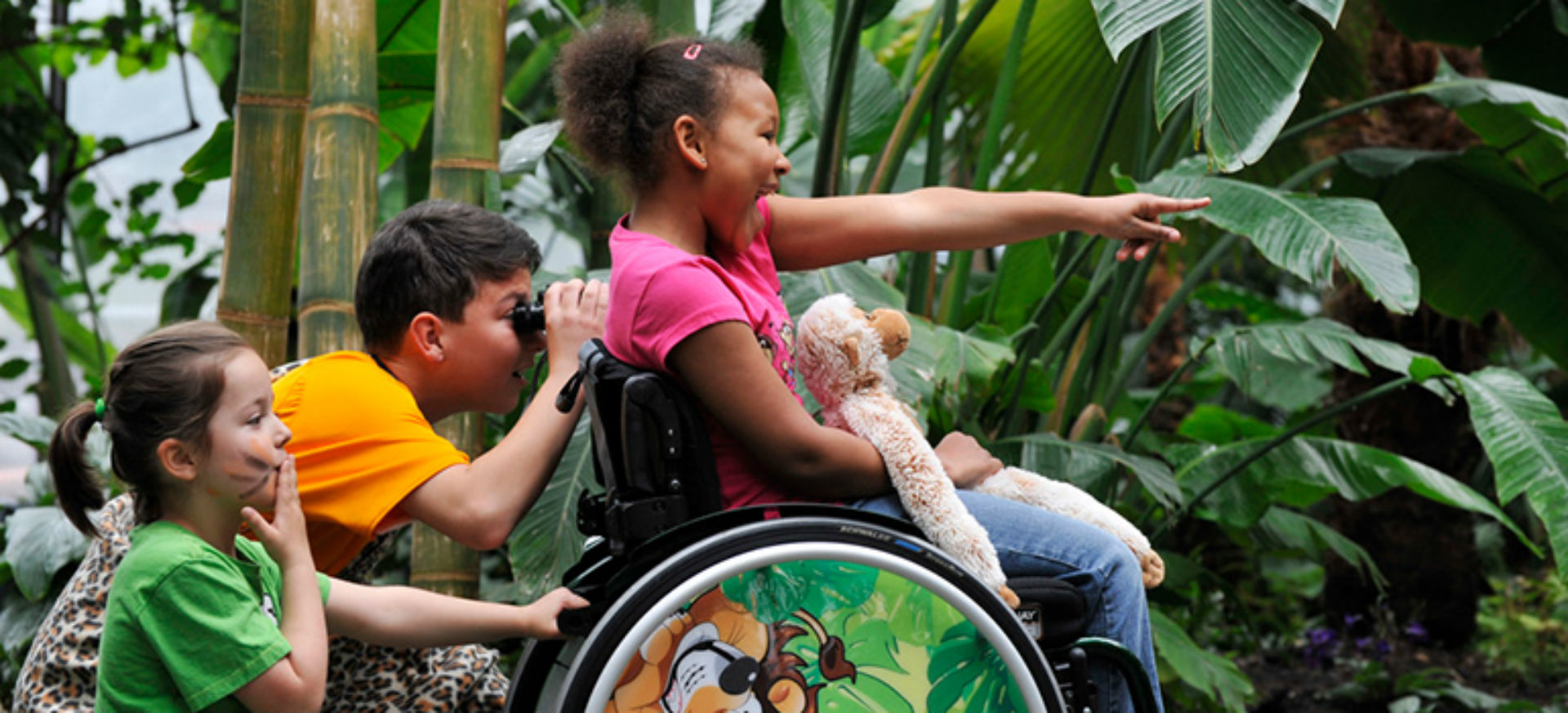Physical activity is very beneficial for all children. Exercising is not only good for children’s health and well-being, but it also plays a key role in their development and learning. Thanks to physical activity, children and adolescents can improve their self-esteem, develop social relationships and learn to overcome their limitations.
These three elements are essential in to help children live an autonomous and independent life, which in the case of children with disabilities is especially important.
Move at your own pace!
Despite considerable efforts to state the opposite, it is still widely believed that people with disabilities cannot take part in sports. However, the benefits of physical activity for anyone with disabilities are a proven fact, not only in strengthening and developing the muscles but also for losing and controlling weight and helping them to feel better in themselves. Subsequently, it is recommended that everyone with disabilities should try and lead an active lifestyle whenever possible.
Does this also apply to children? Absolutely! Cultural, recreational and sports leisure opportunities for people with disabilities are becoming more and more widespread, including many adapted physical activities for children which are both easily accessible and entirely safe.
It’s advised that parents should encourage their children to exercise from an early age. This approach should be individually tailored to a child’s ability, two children of the same age and diagnosis could be advised on different activities.
It’s also important that children recognise these activities as part of their leisure time and not as an obligation, they should be allowed a degree of independence when choosing activities according to their preferences but without losing sight of their limitations. That’s why we recommend that children with disabilities move “at their own pace”.
Finally, there are lots of activities that children with disabilities can do, exercise and activities allows a child to develop their imagination and creativity skills without barriers.

6 benefits of physical activity for children with disabilities
Increases balance, both physically and mentally
Children who play sports are able to let off steam, produce adrenaline and develop their capacity for self-control. One way or another, sport helps them to channel their energy, which is fundamental for their daily development.
Promotes sociability and integration
Physical activities make children with disabilities more social. Their planning and practice are an “excuse” to meet new people, with or without disabilities and relate to them through age or preference.
Improves the ability to concentrate
Physical activities help the child to channel their physical energy while exercising, which in turn increases their intellectual effort when it comes to performing other daily tasks. In fact, according to many experts, the practice of physical activities by children with disabilities improves both their performance in school and their academic results.
It stimulates and motivates
The practice of any physical activity creates motivation in both the learning and practising of the exercise. Which, in turn, develops perseverance, strength and the ability to succeed, which are integral parts of all sports. For children, especially, this type of learning will have a positive effect on their daily lives.
It promotes teamwork
The practice of physical activities, both individually and as part of a team, requires active interaction with other people. For children with disabilities, it provides a way of learning to work together to achieve common goals.
It positively affects their daily lives
The benefits of physical activity for children with disabilities are not limited to the playing field or sports hall. Thanks to the cycle of continuous learning through exercise, children are better able to develop the ability to take the initiative and overcome their daily obstacles and fears.
Exercising intensifies the development of physical and mental skills in children with disabilities and is not only beneficial to themselves but to their families too. If you have a child with any type of disability, do not hesitate. Many parents fear that their children may be at risk of injury while performing physical activities, but nothing could be further from the truth: with activities adapted to their abilities, the benefits will be noticeable from day one. Speak with your doctor and discuss which physical activities would be the most beneficial for your child.
